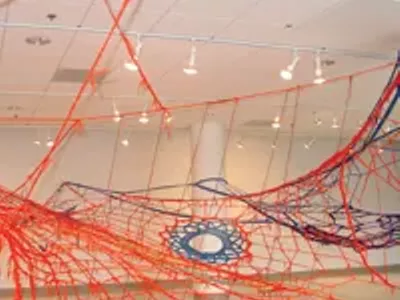Lebanese directors aren't exactly household names in America, but that sorry truth would soon change if more of them were as capable and charming as Nadine Labaki. A triple threat, she wrote, stars in and makes her feature directing debut in Caramel, now moving its way across the country after stirring up acclaim on the festival circuit. The film, in Arabic and French, follows the overlapping lives and romances of a culturally diverse group of women who come together in a once-posh Beirut beauty parlor. It's an impressive first effort for a director known previously for her work in music videos, and particularly considering the ever-evolving political, social and filmmaking conditions in her native land.
Metro Times: Is it difficult to break through as a female director in Lebanon?
Nadine Labaki: No. Of course it's a difficult job, but just as much for a man as a woman. Lebanon is a place that gives a lot of freedom to women to work and express themselves, but that's the contradiction. At the same time, there's still the weight of tradition, education and religion that makes it hard. You have to juggle with the modern side of things.
MT: And Lebanon is right between the cultures of east and west.
LABAKI: Our identity I think is that — a mixture of both. But until now we've gone too far in one extreme or the other, or we've done things the wrong way. I do think we'll get there somehow, I think we're blessed in a way.
MT: Most American don't know how cosmopolitan Beirut really is.
LABAKI: Absolutely. I'm very happy that people are finally seeing a new image of Lebanon, they are excited and surprised. I wanted to change the cliché image you get from the media, of war and chaos, and to show the human side that is never shown.
MT: All we ever see here tends to be about war and terror.
LABAKI: Of course war is a reality but there is another reality that needs to be seen. We don't talk about the war (in the film) but you feel its residues and electricity.
MT: This film shows how friends from many cultures deal with the divide in a small way.
Labaki: In the movie you see Christians and Muslims existing in a very normal, natural way, with the problems and heartaches. But it's a reality of how we live, it's a reality of our country and if we succeed in making that work, it's a lesson for the whole world.






